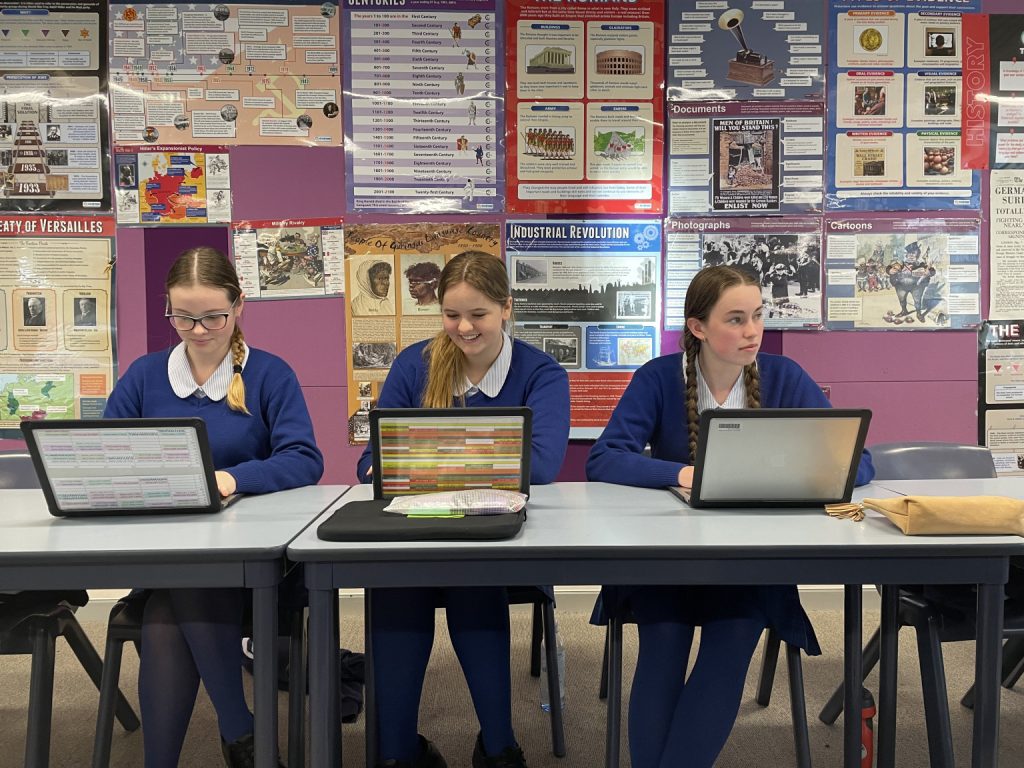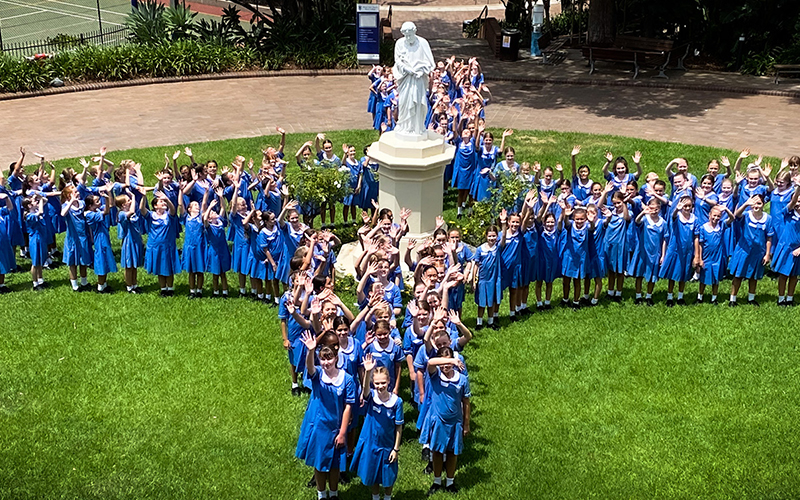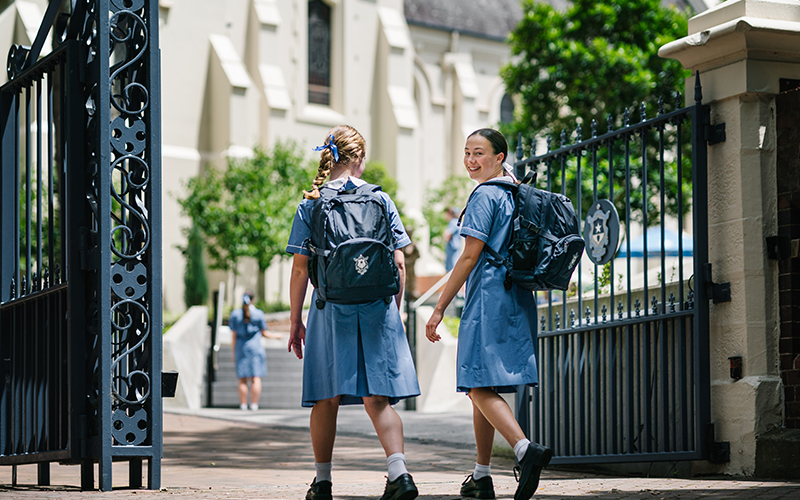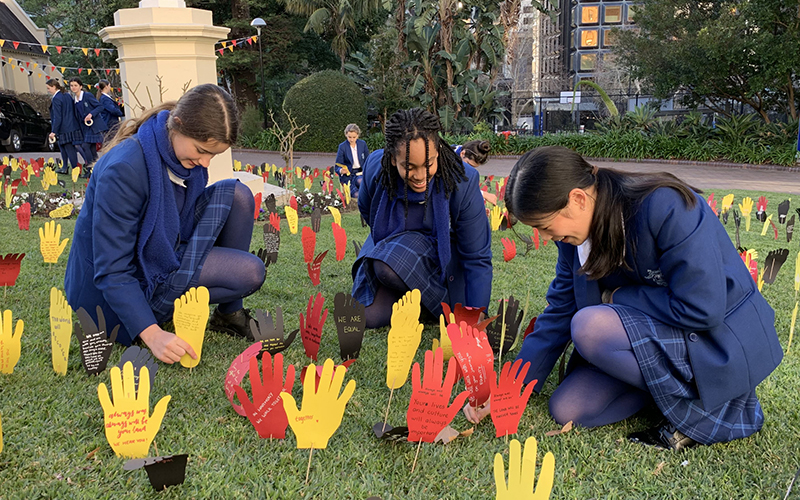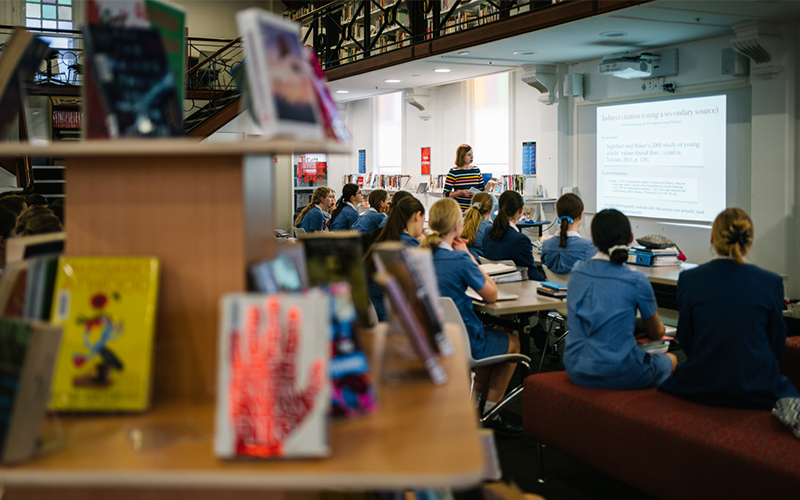A Dual Program
Monte Sant’ Angelo Mercy College is a comprehensive school that offers senior students the choice of studying either the NSW Higher School Certificate (HSC) or the International Baccalaureate Diploma Programme (IB Diploma).
Every young woman graduating from the College can finish her secondary education with a deep sense of pride and purpose. Exceptional academic results have consistently been achieved by students working towards each qualification. With the support and dedication of knowledgeable academic staff, Monte girls experience a rich, diverse and challenging learning environment.
The HSC and the IB Diploma enable entry to university, and students in both programs are eligible for an Australian Tertiary Admissions Rank (ATAR) based on the results earned through internal assessments and their final examinations. This allows senior students to tailor their programs to their own interests, abilities and future plans.
For more information regarding curriculum options in either program, the College’s subject offerings are available for download.
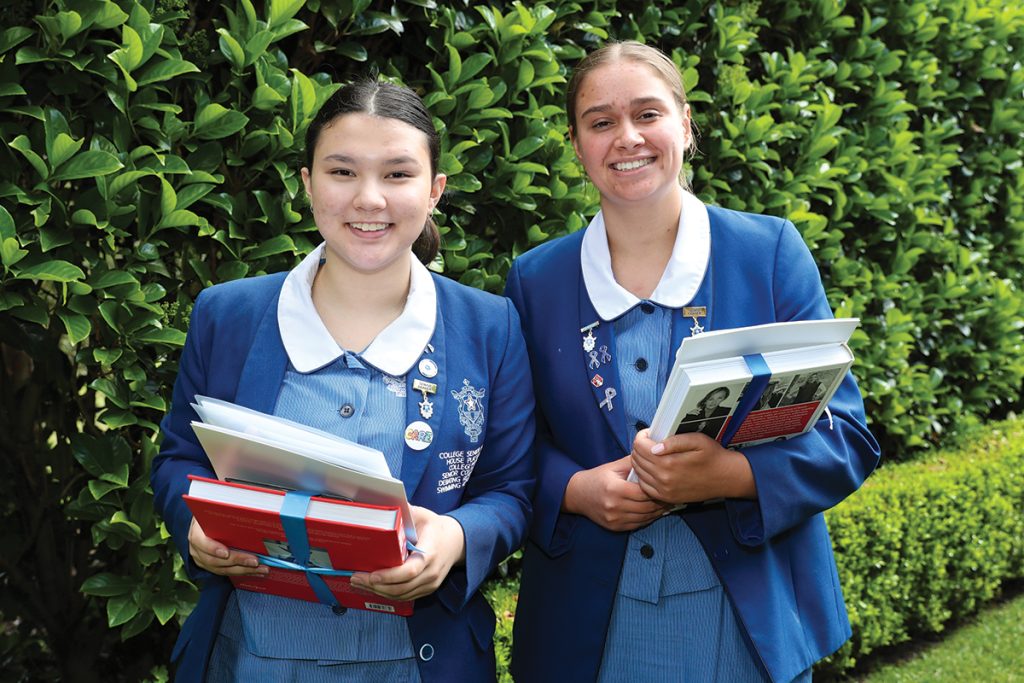
International Baccalaureate
Diploma Program
At Monte, the IB Diploma delivers a high-quality educational programme, which supports the development of knowledgeable and inquiring students.
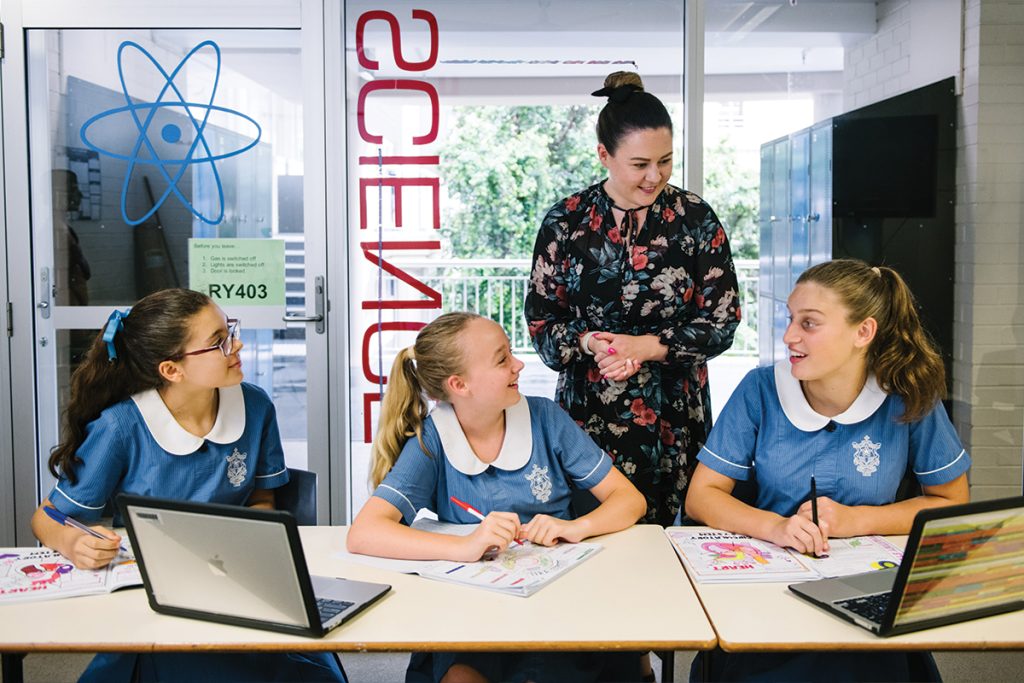
Study Format
The IB Diploma is a widely recognised international qualification studied over two years. It is a holistic program that has been designed to address the intellectual, social, emotional and physical wellbeing of students whilst encouraging them to be global citizens. The program provides students with a broad understanding of the world and equips them with the skills needed to succeed in a rapidly changing, globalised environment. IB students gain valuable international awareness and knowledge that will benefit them in their future careers and personal pursuits.
Students must be willing to study a course from six different subject areas which include English language and literature, Mathematics, Languages, Sciences, Humanities and the Arts. IB students must also undertake Studies in Catholic Thought which is a Monte mandatory subject that does not count towards a student’s final score.
In addition to disciplinary study, IB students are involved in three core elements that broaden their educational experience – Theory of Knowledge, the Extended Essay, and Creativity, Activity and Service.
Middle Years Program
All students at Monte in Years 7 to 10 are IB students as they undertake the IB Middle Years Programme (MYP). As a teaching and learning framework, the MYP enables our young women to benefit from inquiry-based, student-centred strategies, providing a comprehensive and balanced education.
Additionally, in conjunction with the MYP, the IB Learner Profile offers learning with a global community focus that goes beyond academic success, and we continue to improve the development of students’ critical capabilities as they complete all requirements of the NSW Record of School Achievement.
To learn more about what the IB MYP and IB Diploma Programme can offer students, visit the International Baccalaureate website.
Higher School Certificate
The HSC is the NSW Education Standards Authority (NESA) qualification awarded to students who successfully complete HSC subjects in Years 11 and 12.
Study Format
Students undertaking the HSC have a choice of over 25 subjects on offer in the areas of English, Mathematics, Science, Performing Arts, Humanities, Languages, Design and Technology and PDHPE.
The achievements in the HSC are realised through the diligence and perseverance of Year 12 students, who are supported by the College’s integrated academic and pastoral programs. HSC students successfully complete their secondary schooling within a caring and learner-centric culture that affords them the opportunity of subject choice and individualised study programs.
Each year Monte HSC students achieve high rankings across a variety of subject areas. We are proud of the number of students who are named on the HSC All-Rounder Achievers List, HSC Distinguished Achievers List and the NESA Showcase Events including Encore, OnSTAGE and SHAPE.
